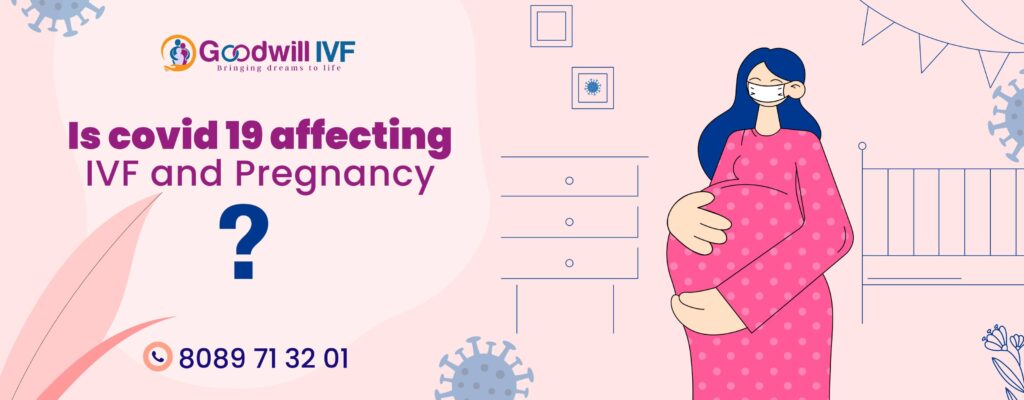In today’s world, IVF is one of the most effective techniques for conceiving a child in cases of difficult infertility scenarios. It is a normal technique that involves several steps, beginning with ovarian stimulation and concluding with embryo transfer. Embryo quality and transfer efficiency are the most important factors in determining pregnancy and successful implantations. Many factors are considered to achieve success in such a difficult process. In Kerala, the success rate of an IVF process isn’t always uniform, and it varies depending on demographic factors. The IVF success rate is influenced by several factors, including pre-existing medical issues. Abnormal exposure to DES, latent TB, and fibroids are all factors that reduce the success rate of IVF. Some male variables have a detrimental impact on fertility and the success rate of IVF. However, the IVF success rate in Kerala has dramatically increased with the introduction of new treatments like ICSI and advanced sperm selection technologies.
Factors influencing IVF success rate in Kerala
Age of the patient
IVF’s success rate is mostly determined by the patient’s age. The success rate of IVF decreases dramatically for elderly women beyond the age of 35. One of the most crucial factors to consider is the egg’s age. The quality and quantity of eggs decrease dramatically as people become older. It is up to the doctor to devise an ovarian stimulation strategy, as well as the number of embryos that can be transferred. It is feasible to transfer approximately five embryos in a single attempt.
Duration of infertility
The success rate of infertility treatments like IVF is highly dependent on the length of time you’ve been trying to conceive. If the period of infertility is comparable to the woman’s age, the success
Ovulation that isn’t optimally functioning
Ovarian dysfunction affects the success rate of IVF treatments as well. Patients with a high level of FSH and a low amount of AMH have a limited chance of success.
Infertility factors involving both partner issues
Unfortunately, if both the husband and wife have infertility issues, the odds of a successful IVF surgery are greatly reduced.
Using an embryo or an egg from a donor
Women between the ages of 35 and 40 can choose to obtain a donor egg from a young woman. It’s a viable option with a reasonable success rate. When an older woman utilizes a donor egg, her chances of success improve by 55 percent, because characteristics like egg quality and age are major drivers of IVF success. Embryo transfer is a tried-and-true method of treating bilateral infertility, with a high rate of success in IVF. Embryo donation has a success rate similar to egg donation.
Lifestyle
The success rate of IVF is significantly influenced by habits and lifestyles. For example, you must quit smoking three months before starting treatment. It increases the likelihood of conceiving successfully. If you have a long history of smoking, you may need to have:
● Ovarian stimulation with higher hormonal dosages results in a decreased IVF success rate
● Smokers have a lower rate of implantation
● To have a child with a partner who is a smoker, you may require multiple IVF treatments
● Smokers have a low fertilization rate
Men are also at risk of poor sperm count, low motility, and malformed sperm as a result of heavy smoking.
Obesity
The rate of IVF success decreases in obese women. Women who are malnourished and have very low body weight, on the other hand, are at risk of having a lower IVF success rate. Men who are obese have a decreased sperm count and sperm motility. Maintaining a healthy weight enhances sperm quality and lowers the risk of erectile dysfunction.
Exercise
IVF success rates are higher for women who exercise moderately. Men who exercise for at least one hour three times a day have good quality sperm that is motile and present in large numbers.
Caffeine
Caffeine consumption in excess can cause conception to be delayed. Caffeine use in moderation is linked to a decreased pregnancy rate and a higher incidence of miscarriage.
Alcohol Consumption
Women who drink more than four times a week are more likely to have an unsuccessful IVF operation, while males may experience low sperm count, poor motility, and malformed sperm. It has been discovered that abstaining from alcohol for three months improves semen parameters significantly and thereby increasing the IVF success rates.
Recreational drugs
Infertility is a problem for women who use marijuana, and males may have low libido, poor sperm motility, and low sperm counts. These side effects can be reversed if you stop using them for a long time.
Excessive cellphone usage
Electromagnetic radiation released by cell phones has been demonstrated to affect the ovaries, uterus, and even embryos in clinical trials conducted on animals. The motility of sperm exposed to such radiations is diminished, and the number of sperm is lowered, as well as formational defects.
If you are concerned about IVF success rates, then visit Goodwill IVF & Fertility center, one of the best IVF centers in Kerala where you can invest your trust. Our experience and expertise have made us one of the most sought-after hospitals in South India which have helped increase the IVF success rates in Kerala on an upward trajectory.
Visit us today!


